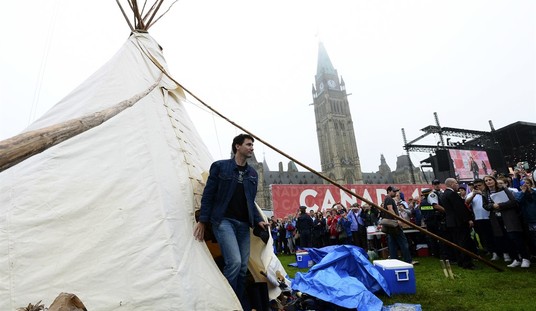In a season of high expectations and perhaps less than stellar delivery, the Republican presidential debate of September 7, 2011, offered the novelty of having newly anointed frontrunner Rick Perry in attendance. Even that tempting tidbit had been in doubt up until the final 24 hours while fires raged in the Texas governor’s home state.
The biggest question may not have been what the two “top dogs” might say, or what those trailing might do to get ahead, but how the moderators would handle it. That answer came quickly when Brian Williams turned the first two questions — directed to Rick Perry and Mitt Romney — into six or seven additions before anyone else got a chance to speak. Each query was an accusation. First, Perry was hammered about the number of new jobs in Texas which were minimum wage. Romney got the next dip at the fountain, asking why his state was 47th in job creation.
These questions were clearly fair game, but the phrasing and tone of the moderator made them seem far more akin to a scene from the Spanish Inquisition. Honestly, by the end of the evening I had lost track of the number of questions which were far less solicitations of opinion and policy than accusations. It was as if Brian Williams and company were looking for the candidates to apologize for being conservatives. As the night progressed, it became clear that the hosts would be severely disappointed.
One of the early highlights of the debate came from the initial question to Herman Cain regarding tax policy. The man is amazing in debate formats and I was reminded once again of the mystery as to why he polls so poorly. His delivery was concise, crisp, and an obvious draw for the crowd. Cain could have been declared the winner of the evening had he been given more time, but he was clearly being treated as a third-tier candidate.
There were a couple of contenders who clearly locked in their status as third-tier runners. Rick Santorum delivered what was essentially a rerun of his past outings. As a tip to his campaign staff, he shouldn’t talk about himself in the third person. It borders on creepy.
Ron Paul drew a fair amount of air time, but struck me as looking a bit more old and tired than he normally does at these events. When he took a shot across the bow from Rick Perry about his 1987 resignation from the Republican Party, he began to stammer and seemed rather absent-minded, for lack of a better term. Congressman Paul most likely neither helped nor hurt himself at this debate.
Newt Gingrich was also on the stage. Unfortunately, that’s about all I have to say about the fact that he showed up.
The person most in need of a breakout performance in the debate — and thereby the one with the most to lose — was Michele Bachmann. She managed to duck under even that bar. There were no notable gaffes on her part, but her stock answers and frequent, distracting glares off camera served as more of a sideshow than anything else. This debate delivered a message to me that the Bachmann campaign is effectively over.
The surprise entry in this particular horse race was Jon Huntsman. After publishing an encouragingly well structured jobs plan this week, he fielded the few questions he received from the moderator in solid form. Sadly, there is still no measurable percentage of the GOP base which will take him seriously, but he put on a good show nonetheless.
The title card fight, of course, was between Mitt Romney and Rick Perry. It did not disappoint. Unfortunately for the former frontrunner, Romney was set back on his heels several times when challenged in a way he’d not been in the last debate. He seemed defensive and small as compared to earlier contests. When you’re spending your time explaining, you’re losing, as the old saying goes. And Mitt spent far too much of his time doing that.
I’m not sure who began the current meme that Rick Perry was a weak debater. They were incorrect. Perry probably was hit the hardest of any of the candidates throughout the event and it was hard to discern a moment where he faltered. He was mostly Teflon through the entire ordeal. His answers rarely seemed evasive and he stood on his record and his previous positions without flinching.
In the one area where I suspected him to be the most vulnerable — his comments about Social Security being a “Ponzi scheme” — the governor fired back with polished flair. Answering the charge that this was “provocative” in nature, he responded by saying, “Maybe it’s time to have some provocative language.”
It was one of two defining moments for him.
The second, and possibly the highlight of the evening, came near the end of the debate when Brian Williams tried to get Perry to back off on the death penalty, citing the number of executions in Texas. Whether it was a prepared statement or not, Governor Perry smacked down the moderator and drew a thunderous round of applause.
As debates go, this was actually a good one in spite of the moderators. The candidates were put through their paces and given a fair opportunity to shine. But unlike the previous engagements we’ve witnessed, this one seemed to have a clear winner. Rick Perry came out looking the most presidential, while Mitt Romney appeared to be searching for a way to recover from the upstart’s sudden popularity. How that will translate in the general election remains to be seen, but for one Wednesday night at the Reagan Library, Governor Rick Perry raised the bar in this primary to a new level.
Also see: Video: PJTV’s Roger Simon, Alexis Garcia and Tony Katz Score the GOP Presidential Debate








Join the conversation as a VIP Member